Written by GARY D. ROBERTSON
Candidate filing in North Carolina will resume Thursday as scheduled, as the state Supreme Court refused late Wednesday to delay the use of redistricting maps endorsed by trial judges earlier in the day.
The justices declined any delay despite a flurry of appeals from Republican legislative leaders opposed to the new lines for U.S. House seats, and from lawyers for voters and advocacy groups unhappy with new state Senate districts that the trial judges upheld.
The decision also means primary elections will remain May 17. The Supreme Court had already suspended candidate filing in December and pushed back the March primary so that litigation challenging maps the Republican-controlled General Assembly approved in November could go to trial.
A majority of justices — all registered Democrats — struck down those lines earlier this month, saying they were partisan gerrymanders that violated the state constitution by failing to treat voters who back Democrats fairly.
Within two weeks, the General Assembly approved new congressional and legislative districts they say complied with the Supreme Court’s demands for partisan fairness and gave Democrats a pathway to win majorities.
On Wednesday, a panel of trial judges upheld the replacement state House and Senate boundaries but adopted an interim congressional plan that likely would be used for the 2022 elections only.
The judges agreed with the recommendation of special experts they hired who said the U.S. House map approved by the General Assembly failed to meet the statistical thresholds mentioned by the Supreme Court to give substantially similar voting power to Democrats and Republicans in an otherwise closely divided state.
“The court concludes that the remedial congressional plan does not satisfy the Supreme Court’s standards,” the order from Superior Court Judges Graham Shirley, Nathaniel Poovey and Dawn Layton read.
Republicans currently hold eight of the state’s 13 U.S. House seats, with North Carolina to gain a 14th seat this decade due to population growth.
The new court-drawn congressional plan makes changes that likely would help Democrats in winning a sixth seat, according to Asher Hildebrand, a Duke University politics professor and former congressional aide.
North Carolina congressional map comparison:
Left: proposed map drawn by GOP legislators.
Right: approved map drawn by consultants.#ncpol pic.twitter.com/RVmZ3R0w7P— Andy Specht (@AndySpecht) February 23, 2022
Republicans would be in good shape to win seven seats. And an open seat stretching from parts of Raleigh south into three fast-growing suburban counties likely would be very competitive, Hildebrand wrote in a social media message. These changes would put obstacles in front of national Republicans seeking to win the seat totals needed to win a majority in the chamber next fall.
Wednesday’s congressional map “is a victory for the people of North Carolina,” said Kelly Ward Burton with the National Democratic Redistricting Committee, whose affiliate helped support a lawsuit filed by several voters. “They are going to be able to vote with a congressional map that reflects the diversity and geographic composition of North Carolina.”
The congressional map the judges set aside Wednesday appeared to strongly favor a Republican candidate in six districts, while four strongly favored a Democrat. The other four were considered highly competitive.
In a report attached to the ruling, special masters Bob Orr, Bob Edmunds and Tom Ross wrote the interim plan “achieves the partisan fairness and ‘substantially equal voting power’ required by the Supreme Court” — while meeting other principles, including protecting the rights of Black voters. Orr and Edmunds are former state Supreme Court justices, while Ross is an ex-trial judge and former University of North Carolina system president.
GOP leaders said the remedial boundaries they voted on last week increased partisan fairness and met statistical thresholds the Supreme Court suggested could be used to ensure they were constitutionally compliant.
In their motion to delay enforcement of the panel’s congressional map ruling, Republican legislators contended the judges failed to give proper deference to the legislature.
“North Carolina has not passed legislation or amended its constitution to allow for a commission of three retired judges, aided by out-of-state mathematicians, to create district plans for our … 7.2 million plus voters,” GOP attorney Phil Strach wrote, referencing the special masters.
Strach’s brief contended the panel’s adopted plan violated the U.S. Constitution — opening a possible door to challenge the map in federal courts.
For the approved state House and state Senate maps, Republicans have a slight electoral seat advantage, according to analyses when the lines are overlapped with the results of 12 statewide elections from 2016 and 2020. But Democrats have a path to win majorities in a favorable political year.
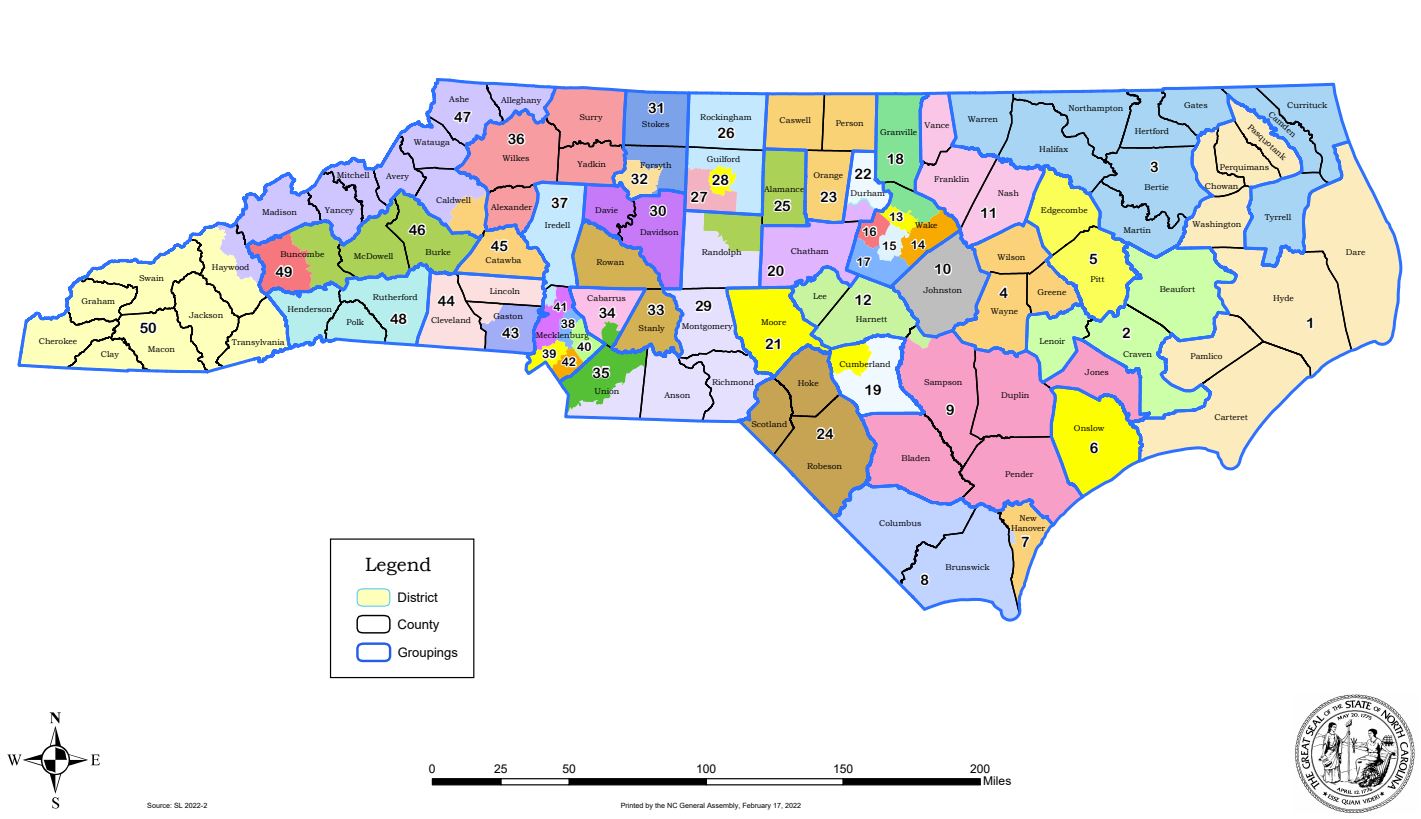
The final North Carolina Senate voting districts for the 2022 elections. (Photo via the North Carolina General Assembly.)
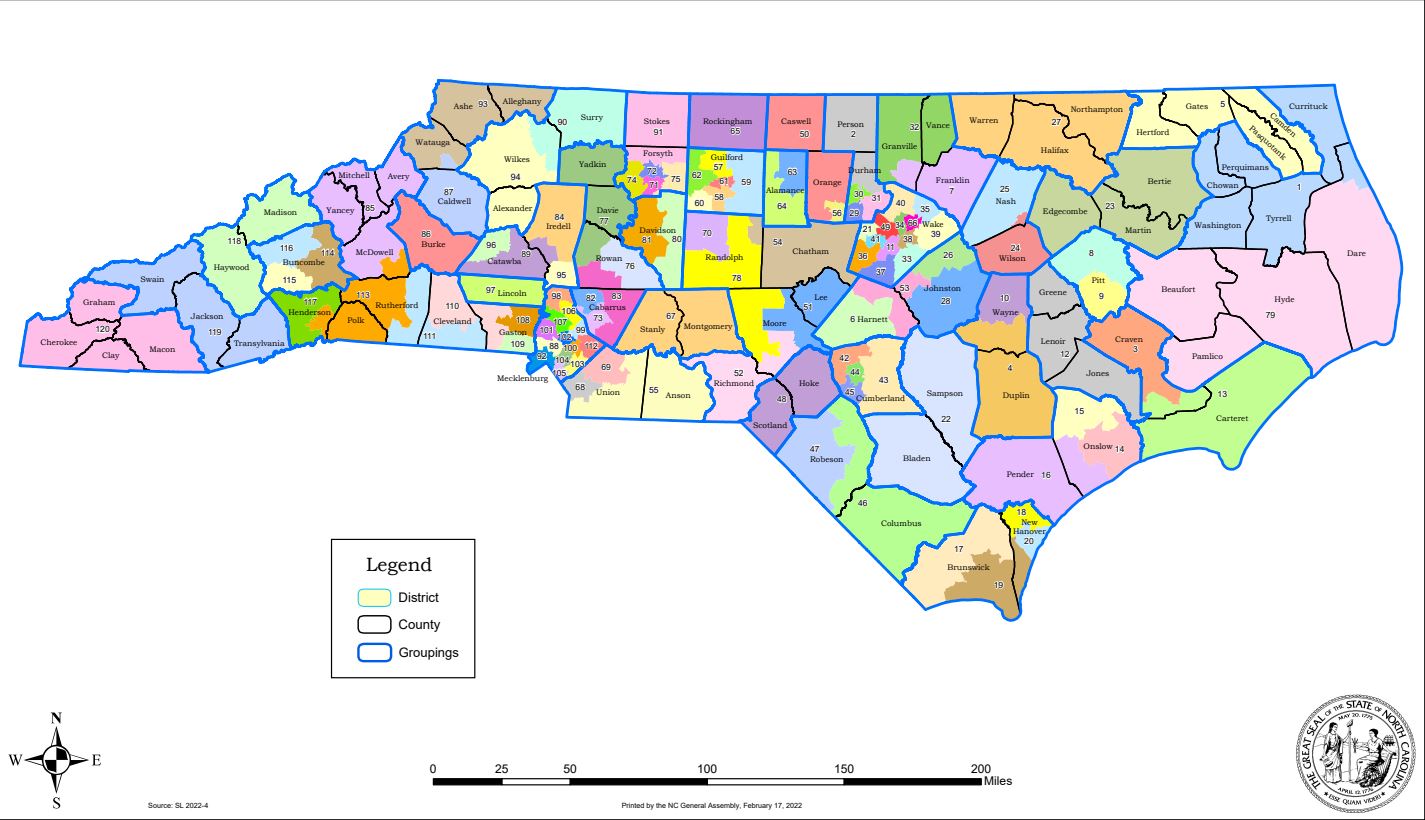
The final North Carolina House voting districts for the 2022 elections. (Photo via the North Carolina General Assembly.)
The lawsuit plaintiffs — the North Carolina League of Conservation Voters among them — had offered alternate maps for the judges to consider. They told the judges the replacement maps passed last week did not go far enough in eliminating partisan bias. Their court filings late Wednesday focused on changing the state Senate map, which they argue still contains pro-Republican gerrymandering.
The state Supreme Court denied over a dozen motions or petitions late Wednesday without giving reasons why. There was also no information provided about whether some justices disagreed with those decisions.
Photo via CBS17.

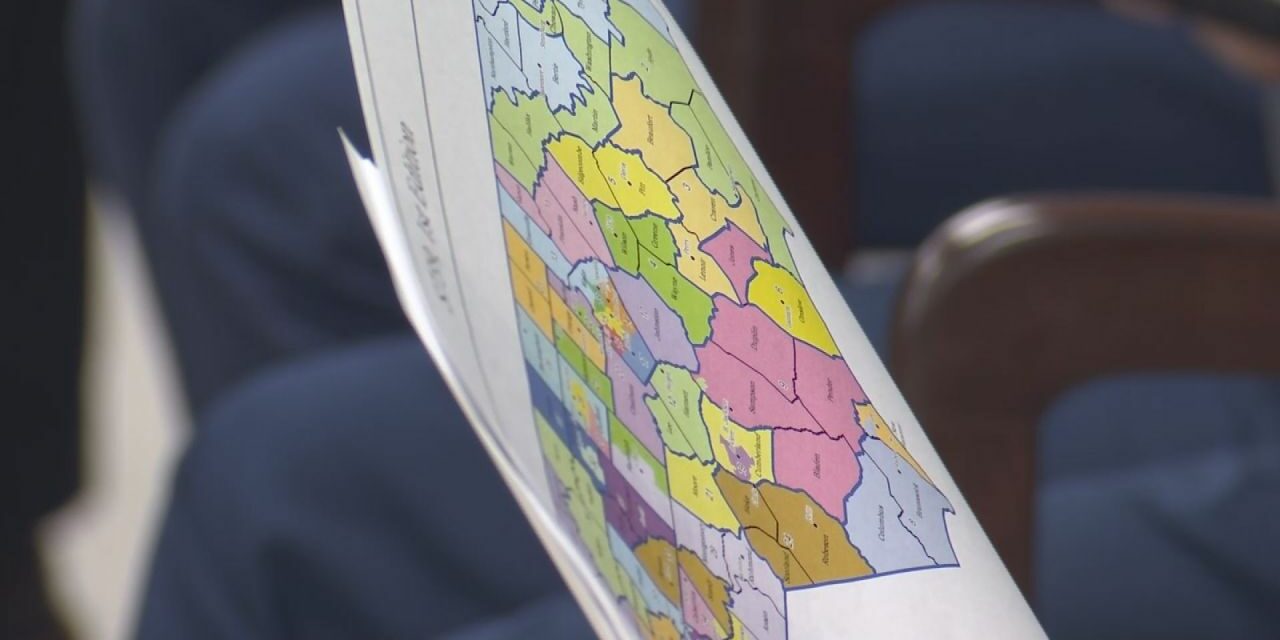
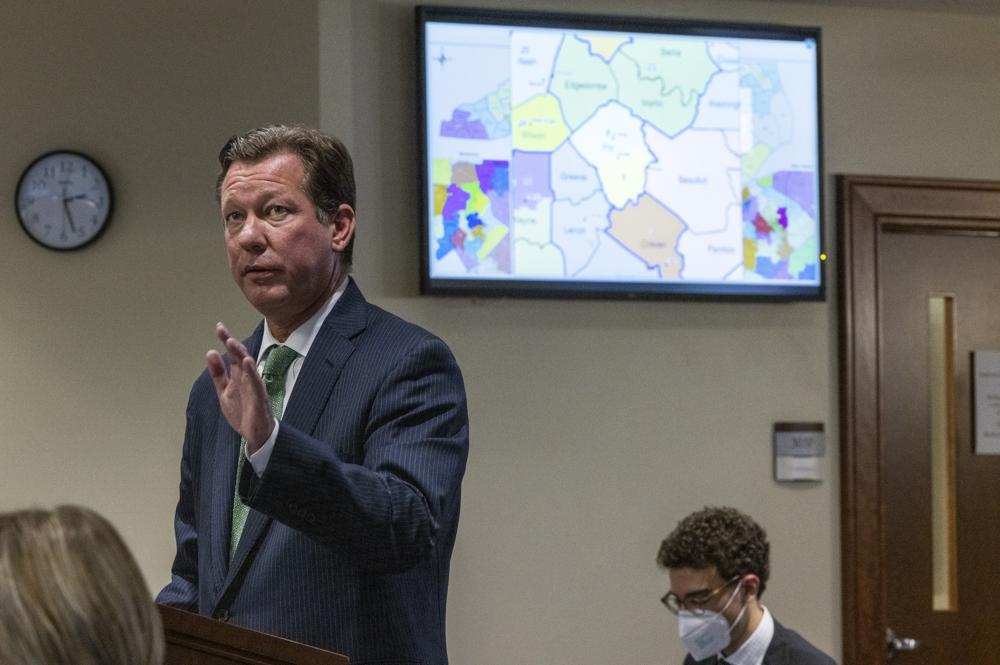


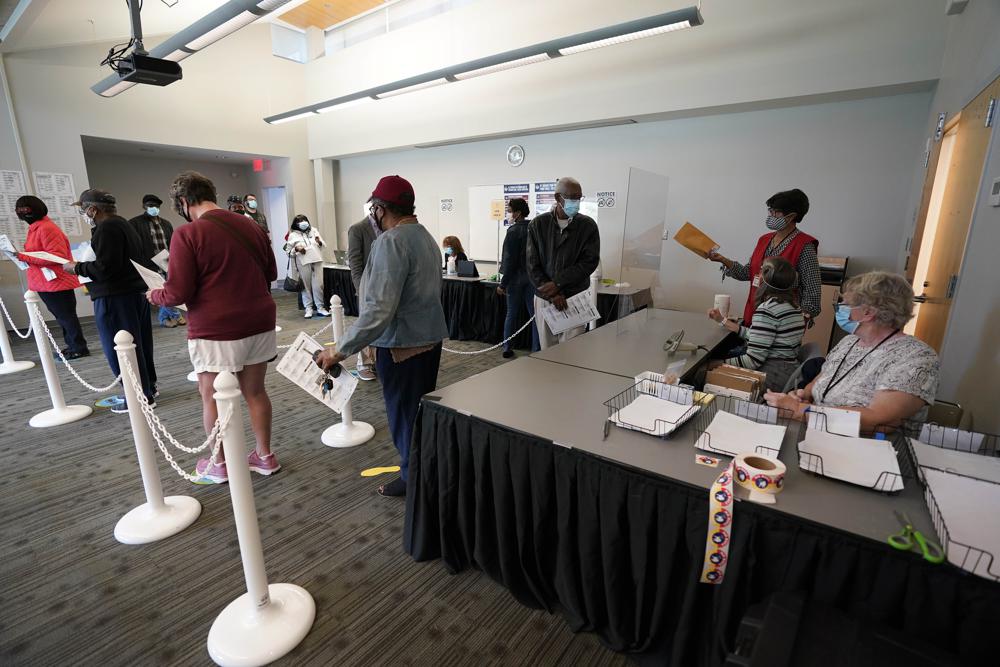
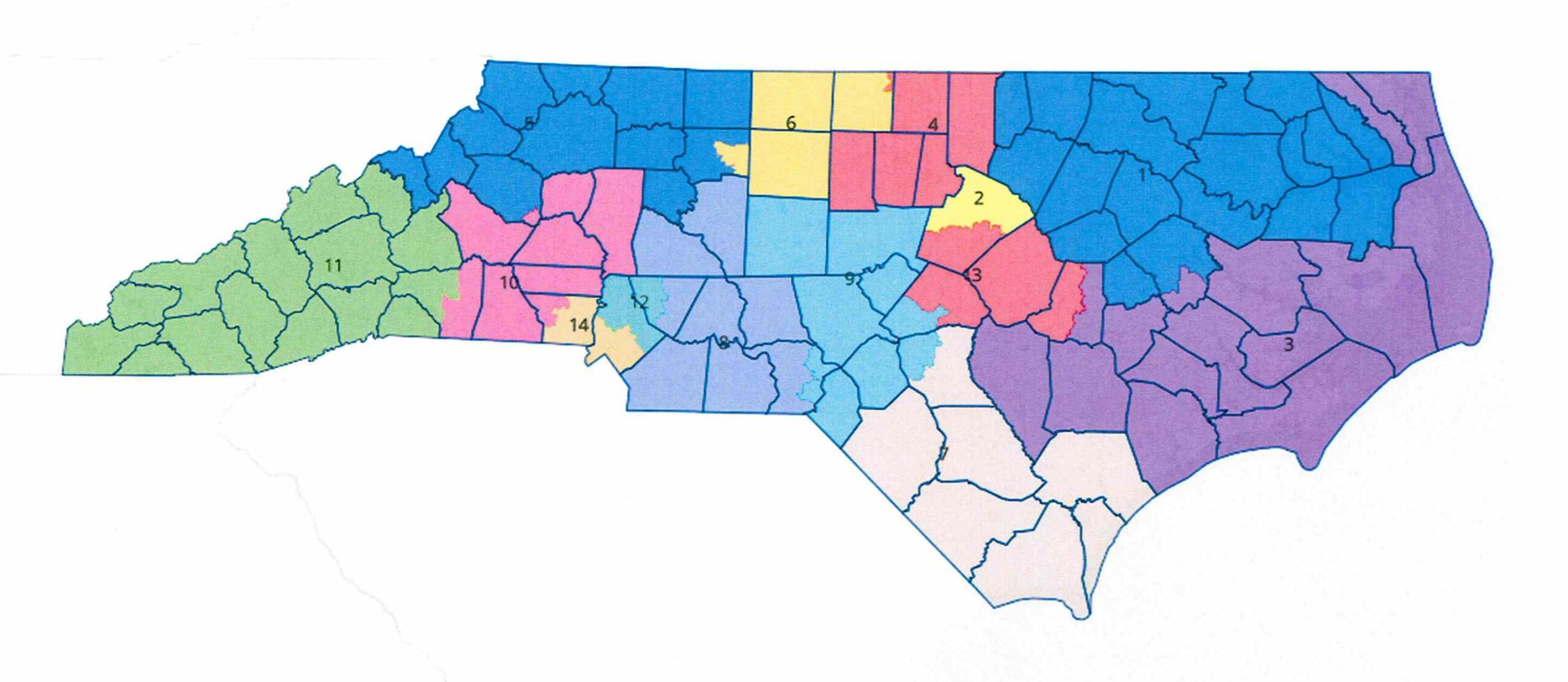
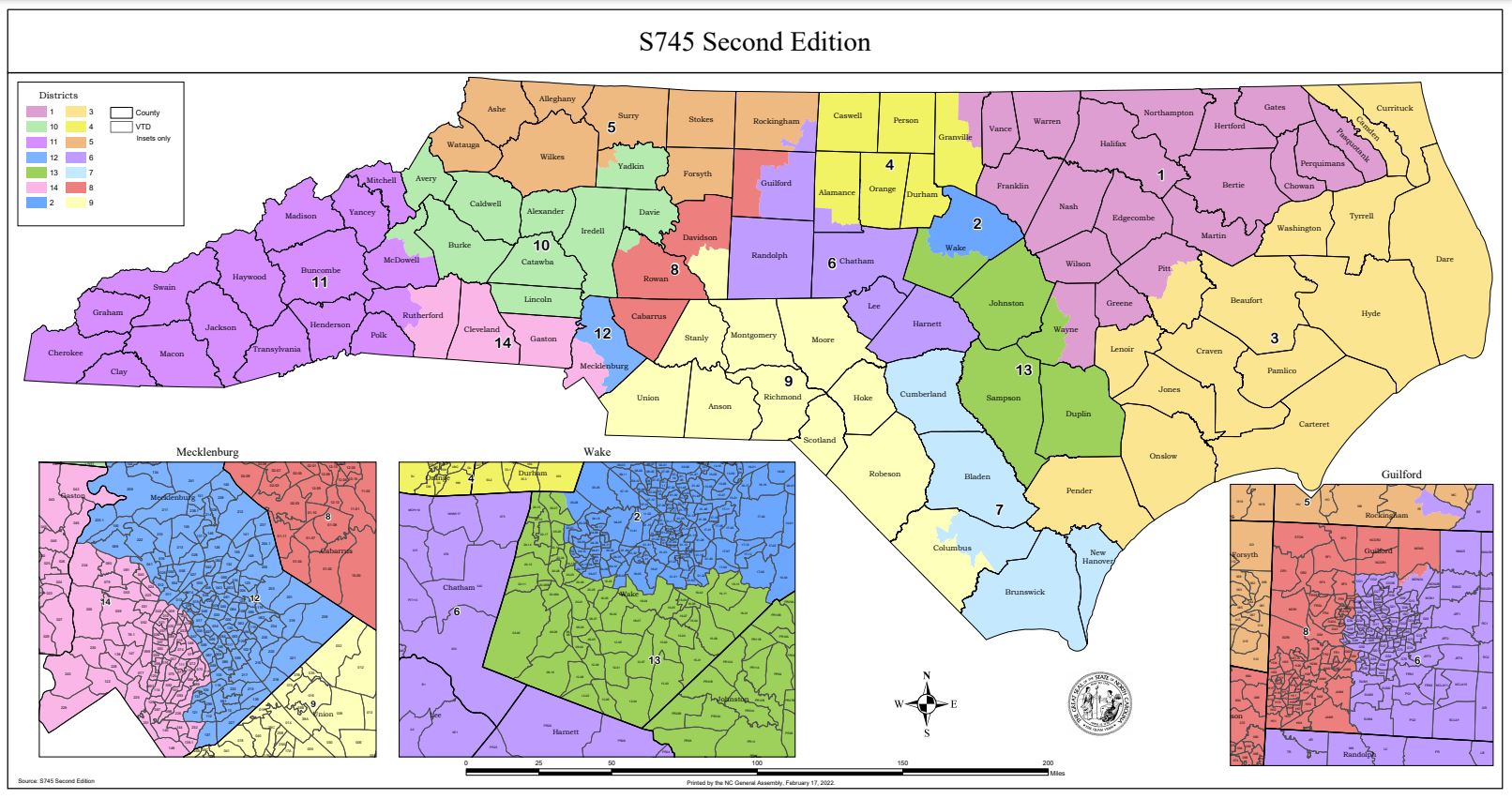


Comments on Chapelboro are moderated according to our Community Guidelines